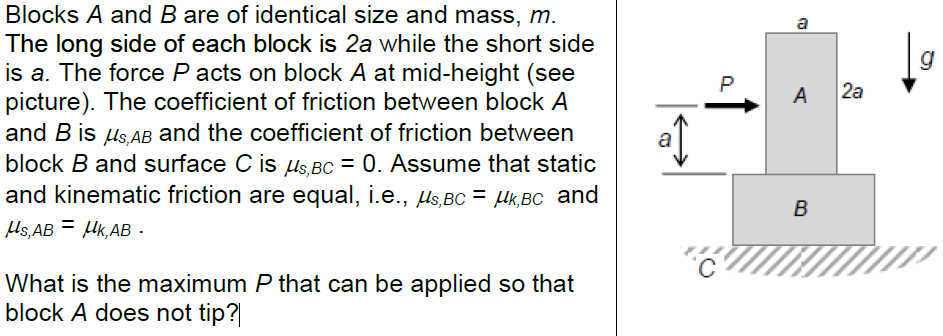Blocks A and B are of identical size and mass, m. The long side of each block is 2a while the short side is a. The force P acts on block A at mid-height (see picture). The coefficient of friction between block A and B is μs,AB and the coefficient of friction between block B and surface C is μs,BC = 0. Assume that static and kinematic friction are equal, i.e., μs,BC = μk,BC and μs,AB = μk,AB. What is the maximum P that can be applied so that block A does not tip?
